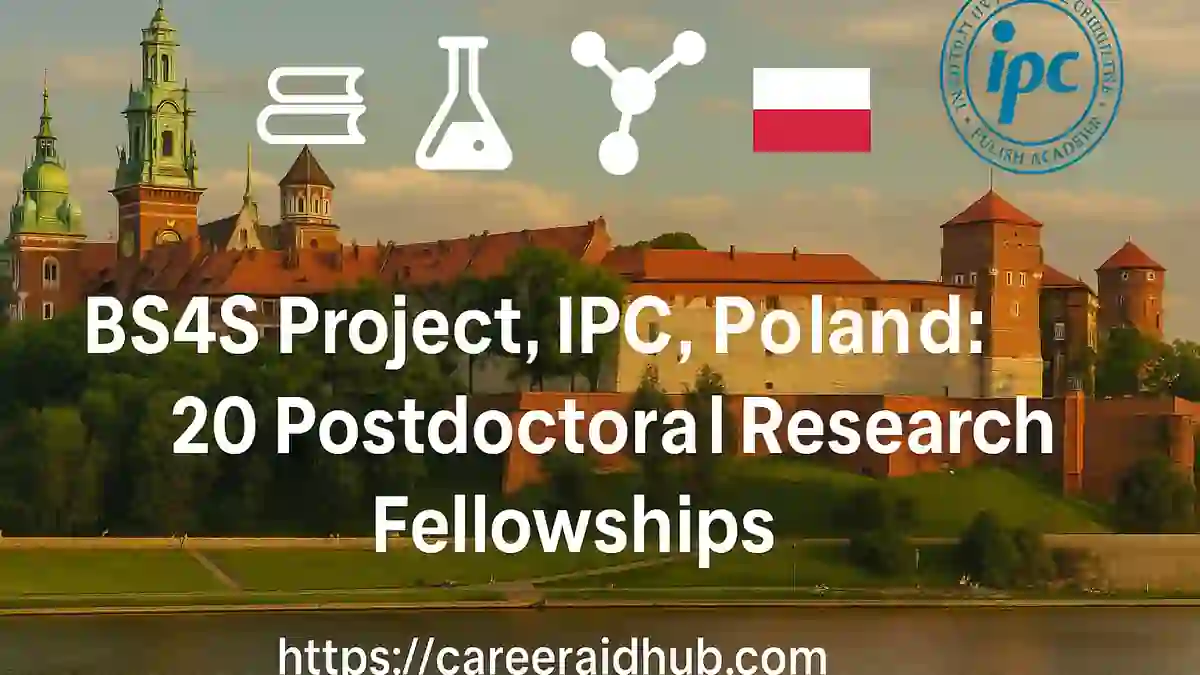Introduction
The Marie Skłodowska-Curie Actions (MSCA) remain a cornerstone of European efforts to attract, train, and retain talented researchers worldwide. Within this framework, the Choose Europe for Science pilot action has been introduced under the Horizon Europe programme to improve career security, enhance working conditions, and reduce the challenges associated with short-term contracts in research. By requiring host institutions to guarantee continued employment prospects, this scheme aims to reshape how Europe retains research talent in the coming decade.
The MSCA Choose Europe for Science initiative, under Horizon Europe, strengthens Europe’s global research appeal by funding postdoctoral careers with long-term stability. It offers competitive allowances, mobility opportunities, and institutional commitments beyond EU co-funding. This guide outlines eligibility, funding details, and key updates to help researchers and institutions prepare effectively.
What is MSCA Choose Europe for Science
The MSCA Choose Europe for Science is a newly launched pilot initiative designed to tackle systemic issues in research employment across Europe. Traditional postdoctoral contracts often lack continuity, which can result in instability and the migration of talent outside Europe. To address this, the programme introduces a two-phase funding model that blends EU co-funding with institutional commitments.
This approach ensures that postdoctoral researchers
not only benefit from competitive salaries and allowances during their fellowship but also gain access to
longer-term professional perspectives. By doing so, it directly addresses the challenge of “brain drain” and builds a stronger, more sustainable research ecosystem.
Who Can Apply and Basic Eligibility
Host Organisations
- Eligible hosts: Any single legal entity located in an EU Member State or a Horizon Europe Associated Country may apply. These entities are responsible for recruiting postdoctoral researchers.
- Partnerships: Host institutions may also form collaborations with other academic or non-academic partners, thereby expanding the training and networking opportunities available to fellows.
Researchers
For applicants, the eligibility conditions are clearly defined to maintain fairness and ensure mobility:
- Doctoral qualification: Candidates must already hold a doctoral degree, or at minimum, have successfully defended their thesis (even if the formal award has not yet been issued) by the application deadline.
- Mobility requirement: Researchers should not have resided or worked in the host country for more than 12 months within the 36 months preceding the call deadline. This condition ensures cross-border knowledge transfer.
- Employment restrictions: Applicants should not be in permanent employment with the host organisation at the time of application, thereby keeping the programme open to external candidates.
These criteria encourage diversity, internationalisation, and the flow of ideas across Europe’s research landscape.
The funding model of MSCA Choose Europe for Science has been carefully structured to combine financial attractiveness with long-term security for researchers.
This comprehensive package makes the programme one of the most attractive funding options available to postdoctoral researchers in Europe.
Researchers and institutions should plan their timelines carefully to avoid missing opportunities.
Looking ahead, similar calls are expected to follow annually. Based on the current schedule, the next cycle is likely to open in October 2026 with a deadline in December 2026. Exact dates will be confirmed closer to the launch, and this article will be updated accordingly.
Unlike conventional postdoctoral opportunities that typically end once external funding is exhausted, the MSCA Choose Europe for Science pilot introduces several distinctive features:
What is the MSCA Choose Europe for Science programme?It is a Horizon Europe pilot scheme supporting postdoctoral researchers with long-term funding, mobility opportunities, and stable career development across European institutions.
Who can apply for MSCA Choose Europe for Science?Postdoctoral researchers with a doctoral degree and mobility eligibility can apply, provided they are not permanently employed by the host institution.
What is the duration of MSCA Choose Europe for Science funding?The programme lasts up to five years, combining two to three years of EU co-funding and two years of host institution support.
What financial support does MSCA Choose Europe for Science provide?Researchers receive a monthly allowance of about €6,700, mobility support, and additional benefits for long-term leave or disability needs.
Which institutions can host MSCA Choose Europe for Science fellows?Eligible hosts include universities, research centers, and organisations in EU Member States or Horizon Europe Associated Countries.
What fields of study are supported under MSCA Choose Europe for Science?The programme is open to all academic disciplines, including natural sciences, engineering, social sciences, and humanities.
What is the mobility rule in MSCA Choose Europe for Science?Applicants must not have lived or worked in the host country for more than 12 months within the past 36 months.
How does MSCA Choose Europe for Science differ from other MSCA fellowships?Unlike standard fellowships, it requires host institutions to provide continued employment beyond EU co-funding, ensuring long-term stability.
When does the MSCA Choose Europe for Science call open?The next call is expected to open in October, with deadlines in December. Exact dates will be updated soon.
How can researchers apply for MSCA Choose Europe for Science?Applications are submitted through the European Commission’s Funding & Tenders Portal, following the official MSCA guidelines.










